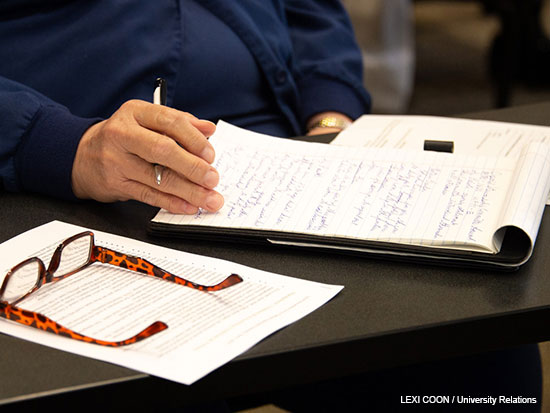 You don't need this story to tell you that we are living through a time of tumultuous change, worldwide, in Alabama — and particularly at UAB. Policies, processes and, in some cases, work locations changed for UAB employees during the past 17 months. And the spread of the Delta variant of COVID-19 statewide is injecting further uncertainty. (Note that UAB has some of the highest rates of vaccination reported in Alabama, making our campus one of the safest places to be during this epidemic.)
You don't need this story to tell you that we are living through a time of tumultuous change, worldwide, in Alabama — and particularly at UAB. Policies, processes and, in some cases, work locations changed for UAB employees during the past 17 months. And the spread of the Delta variant of COVID-19 statewide is injecting further uncertainty. (Note that UAB has some of the highest rates of vaccination reported in Alabama, making our campus one of the safest places to be during this epidemic.)
So you may be interested in some practical tips on living through times of uncertainty available in a LinkedIn Learning video course, Handling Workplace Change as an Employee.
The course, produced in 2017, focuses on overcoming the feelings of powerlessness and dread that change sparks in almost all of us, and it contains practical lessons on long-term career planning, qualities needed for promotion, ways to develop your marketable skills and tips for dealing with difficult bosses.
One particularly helpful section, titled Know your thought processes, posits that in the workplace people fall into four general personality types:
- Analytical,
- Amiable,
- Controller, or
- Enthusiast,
depending on where they fall on a spectrum of responsiveness (emotive to controlled) and assertiveness (askers to tellers).
Each personality type has its workplace strengths and its challenges when confronted with change, instructor Chris Croft says. Analytical people, for example, tend to be quiet, logical, systematic and precise. But they also tend to overanalyze and avoid confrontation. "They fear loss of knowledge when change happens, so they tend to be quietly obstructive or just stay in denial, just carrying on with their daily activities until it's too late."
How to avoid this? "If you're an analytical type, then it's best to use your logical brain to plan for the coming of change," Croft advises. "Force yourself to think about some of the positive outcomes that might come from the change. Don't waste time trying to understand why they're doing it; focus on what you are going to do about it."
Enthusiasts, to pick an opposite personality type, may either think the change is brilliant or terrible, Croft says. "Even if they like the change, they aren't really very good at planning. If you are an Enthusiast, then by all means use your natural chattiness to get as much information as you can, but also try to remain systematic. Maybe work with an Analytical person to calculate the way it might go and the chances of good and bad outcomes.
“Don't jump to assumptions that it's definitely good or definitely bad. Get lots of information and calmly weigh up the options."
